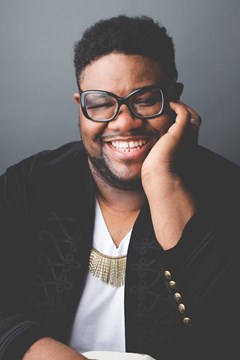Fashion, Identity and Power

Fashion, Identity and Power/HNRS401H3-003
Tuesday 2:00 - 4:45p.m., FALL 2024, in GEAR 129
Application Deadline: Sunday, March 10 at 11:59 p.m.
What we wear and where it comes from tells us much about who we are as individuals and a society. The history of fashion is inextricable from identity and power, as clothing, accessories, and body modification (e.g. tattoos, piercings, cosmetic surgery) illustrate a range of meaning-making and aesthetic decisions that inform how people see the world and, in turn, how they are experienced within it. This course will explore fashion as theory, art, practice, and industry, attentive to the myriad ways it has impact on and is affected by the social, political, and economic terrain in which clothing and accessories function with meaning and consequence. We will cover topics ranging from fashion's design, production, marketing, consumption, the ethical considerations regarding fashion and identity (including race, disability, class, gender, sexuality, age, and size), universal and adaptive design, environmental and climate concerns, sustainability, labor, and the teaching and passing on of culturally informed sewing, beading and other craft practices. We will engage writing and a variety of material objects - archives, visual and performance arts - and seminar discussions will posit the implications of past and current research on fashion and accessories for the present and next steps for fashion as an interdisciplinary field of study cutting across rhetorical studies, art history, apparel design, literary studies, American Studies, Gender, Women's and Sexuality Studies, Disability Studies, Environmental Studies, and Legal Studies, etc. In closing, the course will support the development of each student finding or further developing their own fashion and style studies research, writing, and creative projects, with an eye toward exploring the broad implications of their interests for theory, methodology, and pedagogy of this field.
Course Credit:
- All-students: 3 hours of honors credit
- Fulbright College:
- Fulbright Honors Humanities Colloquium credit
- Three hours of upper-level honors credit in Gender Studies.
- College of Education and Health Professionals: Three hours of upper-level honors credit
About the Faculty  Eric Darnell Pritchard, associate professor, Brown Chair in English Literacy. Pritchard is an award-winning
writer, scholar, cultural critic, and 21-year community-accountable educator, Eric
Darnell Pritchard is the endowed Brown Chair in English Literacy and Associate Professor
of English at the University of Arkansas. They are also writing faculty at Middlebury
College’s historic Bread Loaf School of English.
Eric Darnell Pritchard, associate professor, Brown Chair in English Literacy. Pritchard is an award-winning
writer, scholar, cultural critic, and 21-year community-accountable educator, Eric
Darnell Pritchard is the endowed Brown Chair in English Literacy and Associate Professor
of English at the University of Arkansas. They are also writing faculty at Middlebury
College’s historic Bread Loaf School of English.
Professor Pritchard's first book, Fashioning Lives: Black Queers and the Politics
of Literacy received three book prizes. They are editor of “Sartorial Politics, Intersectionality,
and Queer Worldmaking,” a special issue of QED: A Journal in GLBTQ Worldmaking. Professor
Pritchard’s writings have been published in numerous venues including the New York
Times, Harvard Educational Review, International Journal of Fashion Studies, Public
Books, and Ebony.com.
Their research and writing have been supported by several fellowships including the
National Endowment for the Humanities, the Schomburg Center for Research in Black
Culture, and the Weldon Johnson Institute for the Study of Race and Difference at
Emory University. They also received the 2018 Esteem Award for National Service to
the LGBTQ Community at the 11th Annual Esteem Awards in Chicago, Illinois.
Pritchard's forthcoming biography of 1980s fashion design superstar Patrick Kelly,
Abundant Black Joy: The Life and Work of Patrick Kelly, will be published by Amistad, an imprint of HarperCollins. They have also written
a companion picture book biography on Kelly, Clothes to Make You Smile, which will be published by Abrams Books.